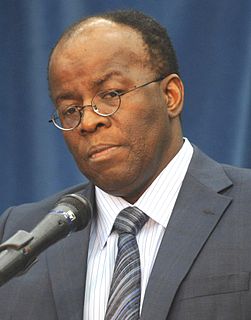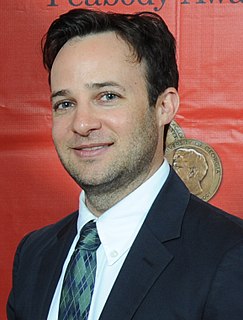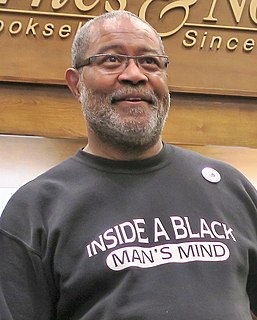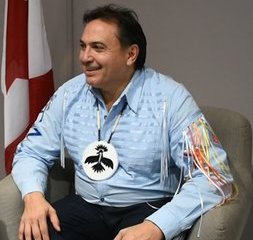A Quote by Michael Moore
It's not surprising to me that in a country born of racial genocide, the issue of race is still an open wound on the American soul. We haven't dealt with it.
Related Quotes
Individuals who have been wronged by unlawful racial discrimination should be made whole; but under our Constitution there can be no such thing as either a creditor or a debtor race. That concept is alien to the Constitution's focus upon the individual. ...To pursue the concept of racial entitlement - even for the most admirable and benign of purposes - is to reinforce and preserve for future mischief the way of thinking that produced race slavery, race privilege and race hatred. In the eyes of government, we are just one race here. It is American.
I think there's a lot of shame in American race relations. There's a lot of suppressed guilt that lashes itself out still. I see that all the time, and whereas opposed to sort of trying to address the issue in an up-front way, they're attacking and thus perpetuating the problem thinking that they're being sophisticated and post-racial, when, in fact, they're being completely regressive.
A wound in the soul, coming from the rending of the spiritual body, strange as it may seem, gradually closes like a physical wound. And once a deep wound heals over and the edges seem to have knit, a wound in the soul, like a physical wound, can be healed only by the force of life pushing up from inside. This was the way Natasha's wound healed. She thought her life was over. But suddenly her love for her mother showed her that the essence of life - love - was still alive in her. Love awoke, and life awoke.
Some will say: "Why should we celebrate the birth of colonialism, of oppression, of cultural genocide through Canada 150?" It's 2017. In spite of the genocide we faced via the residential school system, and all we have endured from colonialism and control, from 1876 to this day, we're still here. We need to show the country and the world that we are still here.
I was born in '58, so the riot in Detroit in 1967 was a memorable introduction to the issue of race and how race made a difference in American society. And then the next year, of course, Martin Luther King Jr.'s assassination. And the Detroit Tigers winning the World Series. All of that made a huge impression on my growing mind.
We are not post-racial. And in many ways we don't even know how to have a conversation about being post-racial. Until we get out of that old-school way of thinking about race and opportunity and the ability to transcend some of the past of this country, then we're going to be stuck in the 20th-century conversation about race.
The human race is the most stupid and unfair kind of race. A lot of the runners don't even get decent sneakers or clean drinking water. Some runners are born with a massive head start, every possible help along the way and still the referees seem to be on their side. It's not surprising a lot of people have given up compeating altogether and gone to sit in the grandstand, eat junk and shout abuse. What the human race needs is a lot more streakers.
I want you to understand that racial justice is not about justice for those who are black or brown; racial justice is about American justice. Justice for LGBT Americans is not about gay and lesbian justice; it's about American justice. Equality for women isn't about women; it's about United States equality. You cannot enjoy justice anywhere in this country until we make sure there is justice everywhere in this country.





































